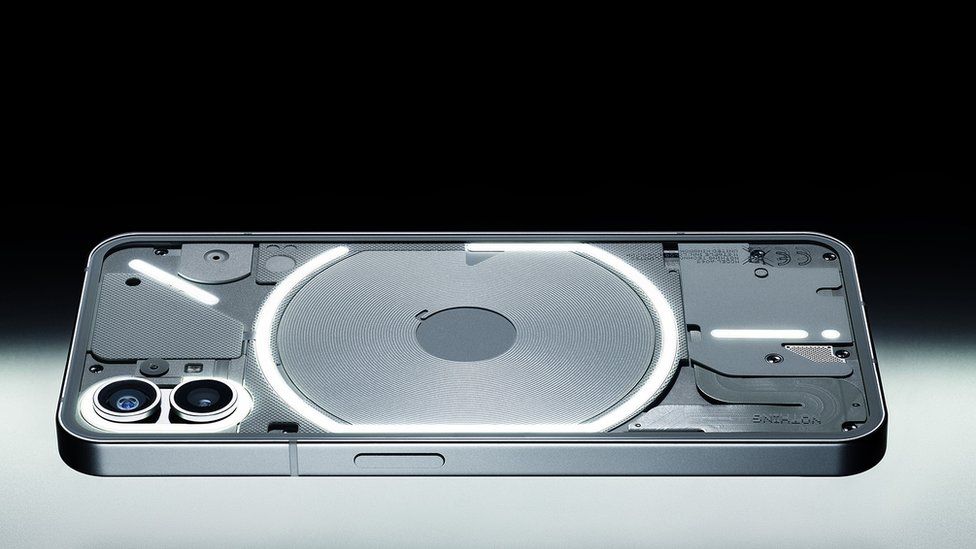ARTICLE AD BOX
By Zoe Kleinman
Technology editor
 Image source, Nothing
Image source, Nothing
UK-based company Nothing has launched an Android phone it hopes will re-energise the smartphone market.
The distinctive-looking Nothing 1 has a translucent back featuring hundreds of light-emitting diode (LED) lights that function as notifications.
Nothing raised more than $144m (£122) in funding to develop the handset.
Backers include iPhone designer Tony Fadell, YouTuber Casey Neistat, and gaming channel Twitch co-founder Kevin Lin.
Teething problems
Nothing 1's creator, China-born Carl Pei, 32, who co-founded phone company OnePlus and is highly regarded in the smartphone industry, told BBC News he wanted to "make tech fun again" - for consumers and investors.
WATCH: Nothing phone hopes to re-energise the market
The company says it has received more than 200,000 requests for pre-orders of the £399 phone - about half the price of an average iPhone - manufactured in China and India.
The company also has ambitions to create a luxury product and Mr Pei says he hopes to collaborate with electric-car manufacturer Tesla.
Nothing has sold more than half a million units of its first product - wireless, noise-cancelling headphones Ear 1, launched in August - despite software teething problems.
'Huge challenge'
But Nothing 1 - despite a fair amount of hype, not least because of the high-profile names behind it - has "a mountain to climb", according to Ben Wood, from CCS Insight.
"The smartphone market is frighteningly competitive and is dominated by Apple and Samsung, who have incredible resources," he said.
"The rest of the addressable market is a firefight between numerous Chinese manufacturers desperate to grab share, making it even harder for a new entrant to break into the segment.
"Add in the current macroeconomic situation and cost-of-living pressure, and it means being successful will be a huge challenge."
Globally, smartphones sales were down 17% in May, compared with last year, according to CounterPoint Research.
There are a number of reasons for this:
- people holding on to their devices for longer because of rising living costs
- environmental concerns around e-waste
- global chip shortage and supply-chain issues
"The big suppliers, they owe their bigger customers a lot of chips, they were really hesitant to bring in a new customer like us, a much smaller company," Mr Pei said.
"We had to spend so much time finding different suppliers and pitching to them why the market needs somebody like us."

 2 years ago
102
2 years ago
102








 English (US) ·
English (US) ·